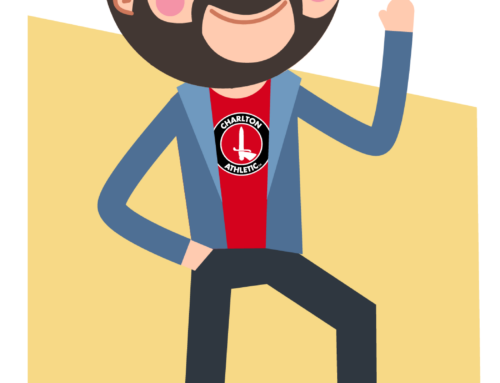 Enjoy Benefits director Vic Johnston was recently a guest on the podcast How to Be Happy at Work, talking about the benefits of benefits.
Enjoy Benefits director Vic Johnston was recently a guest on the podcast How to Be Happy at Work, talking about the benefits of benefits.
Vic has also written an MBA dissertation about what motivates employers to provide staff benefits, so it’s a topic he’s both knowledgeable about and fascinated by.
If you’re thinking about providing benefits to your employer, or you already offer staff benefits and want to understand how to make the most of them, you’ll find valuable insights in the podcast (see below).
We’ve pulled out the key takeaways from the episode in a question-and-answer format, including what staff value most, the single most popular benefit, and how to help your staff engage with all the benefits you offer.
If you’d like to talk to us about employee benefits for your business, you can call us on 0800 088 7315 or get in touch using our Contact Form.
Q: Why do staff benefits matter?
Vic: Benefits can help people stay with one employer over another. They become part of the culture you work with. For employers, benefits can be an extension of that kind of corporate culture. They say to staff: “We’re a real family unit, so we work together to help our employees feel included.”
Companies that have happy employees tend to have happy customers. You can just feel that you want to work with a company and that they’re happy to be working with you.
Q: What types of benefits do staff value most?
Vic: Flexibility tends to be something employees value most. Post-pandemic, everyone’s still coming to grips with hybrid working. Offering different ways of flexible working – including benefits like holiday exchange schemes – makes that easier and offers your staff options.
Q: What about other benefits, particularly financial ones?
Vic: There are different aspects to happiness: financial, flexible, spiritual, physical.
Some benefits like private medical insurance, help staff by letting them know that they’ve got that to lean on.
Private medical insurance schemes can be expensive for employers, however. Lighter versions such as healthcare cash plans allow people to have a pot to pay for things like glasses, dentistry or problems with their feet.
Cash plans like these don’t cost employees a lot, but they mean a great deal to the employees. Your employer looking after your health makes you feel like they care about you as a whole person.
Q: What is mental health support like?
Vic: Employee Assistance Programmes are helplines for people that let employees ring up and say, “I’ve got this problem”. It’s entirely confidential. Employers don’t know each individual who’s accessing it, just the number of people using the service. And it applies to family members too.
EAPs can be traced back to the Rowntree family in the Victorian era, who had a great impact on employee wellbeing through practices they established in their confectionery manufacturing business. Their work on social reform continues today via the Rowntree Foundation.
The Rowntrees set up the first employee benefits schemes, to give back to employees. That altruism is a circle where if employees benefit, then employers benefit too.
Q: How can employers ensure staff take up benefits?
Vic: Driving engagement around take-up of benefits can be tricky. At Enjoy Benefits we offer a benefits platform, all in one place. Housing all things in one area, a couple of clicks from your desktop, is important.
Benefits days or benefits fairs remind people: “Hey, you could be doing this.”
Benefits days could be designed around fun days out for teams, which accentuate certain benefits offered, like discounts on days out.
Or they can be fairs on site, literally with things like hook-a-duck. It helps people pause and take the time out to discover and sign up for benefits that help improve their lives.
 Q: What is the single most popular benefit?
Q: What is the single most popular benefit?
Vic: It’s definitely the workplace nursery benefit. Nurseries are expensive, with some people paying over £1,000 every month. Individual staff members can save thousands a year with it, and it offers the most significant transformation for employees.
It allows them to return to work because they can afford it, work fewer hours, take holidays, or take more expensive holidays. And it impacts women particularly, making a significant difference in the choices they can make about their careers.
Q: Is there a benefit you wish more people would take up?
Vic: I wish more people cycled to work. With the Cycle to Work Scheme, you can buy a £1,000 bike and save all the tax and national insurance on it. Your employer pays less national insurance too. A £1,000 bike will cost a basic rate taxpayer £680, so that’s a great saving.
What’s special about this benefit is everyone’s a winner. You and the employer save money, it’s good for your own health, and ecologically better too.
Q: You’ve said you’re a big cyclist. Do you cycle to work?
Unfortunately I don’t, because there are no showers at work. So that’s an example of the ways that you may need to put things around employee benefits.
You need to be holistic and see how benefits fit into your workforce, as well as the workforce that you want to attract.
It’s important to think about culture – creating a workplace where people are happy to work, where productivity isn’t the only measure. And picking benefits that support your culture.
You can listen to the whole podcast here:
How to be happy at work: The benefits of benefits (duration 36 mins)
Vic Johnston is IT director and a company director at Enjoy Benefits. You can find out more about Vic and the Enjoy Benefits team on our About Us page.
Work with us
At Enjoy Benefits, we have great experience in helping companies of all sizes introduce benefits that are suitable for their workplace.
Benefits are easy to set up and ongoing administration is then run through a hub, allowing employees to manage their own benefits while the employer can see which benefits are proving popular and what level of take-up each one has had.
If you would like an obligation-free chat to discuss which benefits might work for your business and your employees, please contact us by calling 0800 088 7315 or using our Contact Form.





